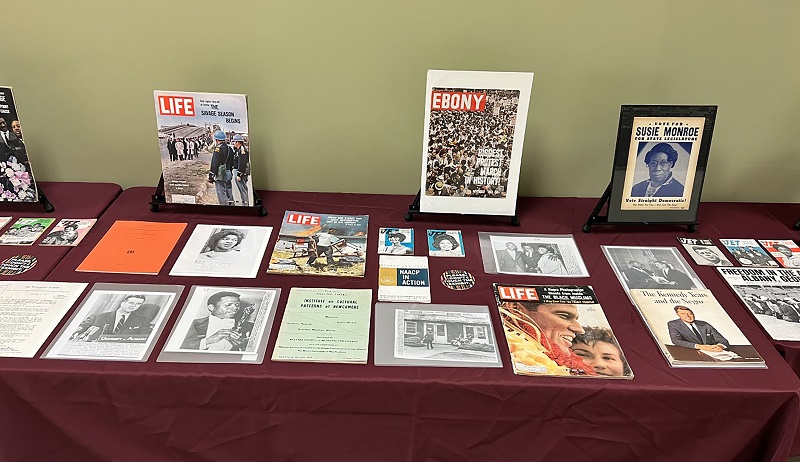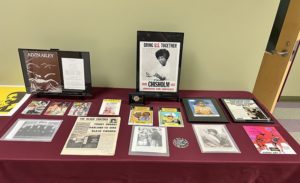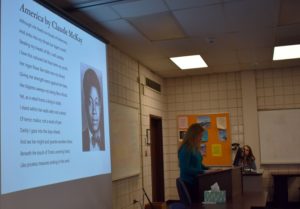
Special to Iredell Free News
Mitchell Community College celebrated Black History Month, a time to encourage educational opportunities that increase awareness of the contributions and impact of Black Americans, throughout February.
The college’s Equity and Inclusion Council (EIC) leads the celebration of Black Heritage Month. The EIC is a group of faculty and staff who work to build an inclusive campus culture, with the support of the college administration.
This month, students, faculty, and staff had the opportunity to learn about the history and significance of Black culture, with a focus on the artistic contributions of Black Americans.
“Music, literature, and the arts can be used to tell stories,” Beverly Brown, Music Department chair and director of Equity and Inclusion, said of the artistic focus of Mitchell’s recognition of Black History Month. “It is a great way to hear someone else’s story, making it more real and alive.”
Centering around historical and cultural artifacts, the EIC coordinated the display of the Homage Exhibit on the Mooresville Campus. Artwork by artists such as Romare Bearden and Elizabeth Catlett alongside original documents by Frederick Douglass, Shirley Chisholm, Booker T. Washington, Ralph Bunche and more were featured.
Faculty, staff, and students joined the EIC for a professional development seminar on the Statesville Campus which focused on the Harlem Renaissance, a Black American cultural and artistic movement in the 1920s and 1930s. A presentation on the history and origin of the Harlem Renaissance was led by Micki Kaleta, a history professor at Mitchell.
Beverly Brown led discussions on influential Black artists, sharing videos that featured Josephine Baker performing live on stage, Jazz-influenced compositions by Duke Ellington and Fletcher Henderson, and a recording of Afro American Symphony by William Grant Still. Discussions about influences from Jazz, Blues, or Ragtime occurred. Additionally, EIC members read the poetry of Black authors, selected by Mitchell’s English Department. The works of authors like Langston Hughes and Claude McKay were read with feeling and emphasis, concluding with a reading of Zora Neale Hurston’s “How it Feels to be Colored Me.”
During this past month, faculty and staff also received emails focused on the celebration of Black History Month from Mitchell Library Services and the Equity and Inclusion Council. The emails provided content regarding resources that provide an exploration of related databases and educational social media outlets.
Students have also been offered a free “Building Racial Justice” Series as a chance to enrich their educational experience by providing a space for new perspectives and conversation.
With these activities and educational opportunities, Mitchell Community College continues its commitment to providing an equitable, accessible education that engages and facilitates an inclusive campus culture.











